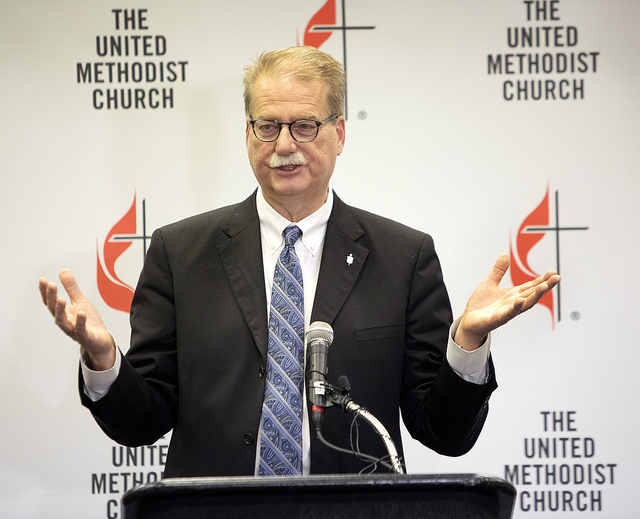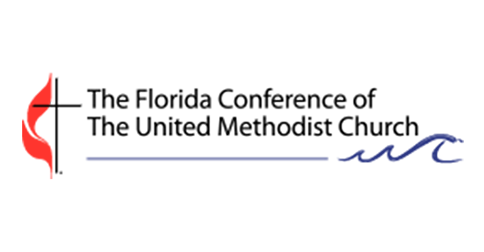**Click Here to Read an Introduction from St. Luke’s Leaders**
Dear St. Lukers,
If you have been following the national news in recent days, you have probably seen a story or two about the United Methodist Church. Not all the stories are accurate or fully explain what has been occurring in our denomination so we wanted to make sure you have as much information as possible.
Since the fall of 2019, a group of representatives from around the globe has been working with a professional mediator, with extensive credentials, to consider a plan to help delegates navigate the United Methodist Church General Conference which will be held in Minneapolis this May. The group of sixteen, along with others who gathered during the first meetings, represent the diverse racial, cultural, gender, orientation, and theological spectrum of the global United Methodist Church. Bishops and laity were at the table including our own resident Bishop Ken Carter from Florida. The negotiations led to a Proposal that offers the body of the General Conference a way to move forward this May. Bishop Carter outlines the eight-page Proposal in a letter to the Florida Conference.
The Proposal is not binding and must be turned into legislation that would then be voted on by the 800+ global delegates. What makes this work unique to the other plans, is this Proposal has been agreed to by leaders of all the different groups and plans represented throughout the current United Methodist spectrum. This Proposal also has the agreement of each representative to work together toward the writing of legislation and promotion of future legislation to the body of delegates at General Conference. Delegates will still need to vote on the legislation created in order for any of this work to become realized.
This Proposal does not represent a split. The Proposal holds the United Methodist Church intact, allowing for regional conferences (US, Africa, Philippines, and Europe) to each have their own Book of Discipline as governance. A regional US United Methodist Church could then allow removal of the exclusive language against our LGBTQ siblings and call for a focus on all understandings of inclusion, including tackling the issues of racism and bigotry that have tainted our history as Methodists predating the Civil War. The Proposal also allows for those with a more literal reading of scripture, who call themselves traditionalists, to leave the United Methodist Church and create their own denomination, with the grace to keep their assets. There is much more to the Proposal so please read as much as possible for the most accurate information on the work of this team.
We will continue to be St. Luke’s, living out our Wesleyan heritage, call toward evangelism, and witness to those we have yet to meet. We will live out our core values centered in Christ’s love and expressed through acceptance, hospitality, community, discipleship, and service. As part of the Florida Conference of the United Methodist Church, we look forward to strengthening the legacy of United Methodism in our region which began for St. Luke’s 40 years ago this past December. We encourage you to ask questions of your clergy, staff, and lay leaders as we move closer to General Conference. We will be gathering with food, fellowship, and information throughout 2020 as we move through this season as a church.
This unique time calls us to embrace the tenants of John Wesley that in all things may charity and grace prevail as we seek to live into our call to greater mission, service, and evangelism. May we listen deeply and bless one another in our differences, recognizing that our diversity makes us a greater witness of God’s love. Let us make a deeper commitment to be the church of tomorrow and broaden our understanding of how to reach people with Christ’s grace and love to awaken disciples to reveal the Kingdom of God.
Grace and Peace,
St. Luke’s Leadership
Dear Sisters and Brothers of the Florida Conference,
Grace and Peace to you, in the name and spirit of our Savior and Lord, Jesus Christ, in these first days of a new year.
I write to commend to you the fruit of a mediation process undertaken by sixteen United Methodists, entitled “A Protocol of Reconciliation and Grace through Separation.” The eight-page document, linked here, represents work done by a group of United Methodists from across the world who represent many (not all) of the important streams of our church. This work was done in collaboration with Mr. Kenneth Feinberg, noted mediator known for his work with the September 11 Victim’s Compensation Fund, the Virginia Tech and Boston Marathon victims, and the BP Deepwater Horizon Disaster. Mr. Feinberg, who is not a United Methodist, offered his professional guidance to us pro bono.
The Protocol is offered in service to the delegates who will gather four short months from now in Minneapolis for the 2020 General Conference. It is not perfect–no mediation is–but it gives a great deal to each of these different streams, more than I could have imagined at the beginning. All of this has been done—and the word I hear from many is that it is something of a miracle—without harming these persons. I attribute this to the work of the Holy Spirit.
The protocol was unanimously affirmed and signed by the sixteen participants.
Key features of the mediation protocol and proposed legislation that will follow are:
- The ongoing existence of The United Methodist Church
- A gracious way of departure for a traditionalist conservative Methodist Church, with a financial settlement.
- The creation of four regional conferences—Africa, U.S., Europe, Philippines—each with its own ability to adapt the Book of Discipline.
- The removal of restrictive language related to LGBTQ identity and practice in the U.S. post-separation United Methodist Church immediately following the May General Conference.
- Holding in abeyance any administrative or judicial processes regarding restrictions in the Book of Discipline related to LGBTQ persons, as of January 1, 2020.
- Creation of a fund to strengthen the Black Church and ministries with and among marginalized persons.
- No annual conference or local church is required to vote on departure from the United Methodist Church.
- No one is asked to leave or separate from the church.
- Annual Conferences and local churches may vote to depart from The United Methodist Church with their property in order to participate in another Methodist expression.
- Wespath will offer a continuity of service across the various Methodist expressions.
Note: This brief summary is not intended to be a substitute for the actual reading of the protocol. It is simply to encourage United Methodists to develop an understanding of the contents of the protocol. I encourage you to view the following documents:
Much of the effect of this protocol will be how we receive it and how we turn toward each other. It is not about winners or losers, but about how God’s promise of grace and reconciliation relates to our structures, convictions, and hopes. It is significant, and at the same time, it is one step in a journey.
For me, this mediation work is in the fulfillment of my consecration vows as a bishop, to seek the unity of the church. And for me, it is in continuity with the work of the Commission on a Way Forward.
- No one has to vote to leave the church.
- No one is being asked to leave the church.
- And The United Methodist Church, under the cross and flame, will continue to be in ministry across the world.
We were told in the mediation process that if we did not write the narrative, it would be written for us. A culture of trials related to LGBTQ persons in the church becomes the dominant narrative. By holding these administrative and judicial processes in abeyance until the resolution of these matters, we are able to devote our energies to working and walking together to finding reconciliation and grace through structural separation.
I give thanks for those who participated in the mediation and particularly to Mr. Kenneth Feinberg, who led us in this process. I give thanks for all of the people of the Florida Conference, and believe this mediation does no harm to anyone of them. I also place great trust in our delegation to the 2020 General Conference. They are authorized to help our church to move forward into a new season of mission and flourishing.
In the interim, we have much work to do in service to our Lord, in the strengthening of our local churches and ministries. We have an important question to answer: “What kind of annual conference will we be?” And we are in connection with each other, for a larger purpose: “to make disciples of Jesus Christ for the transformation of the world.”
This will continue to be my focus, and I ask you to join me.
The Peace of the Lord,
+Ken Carter
Bishop, Florida Conference, The United Methodist Church


